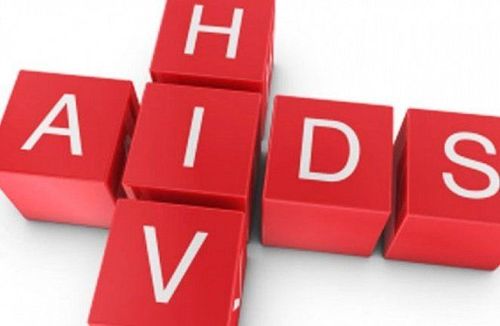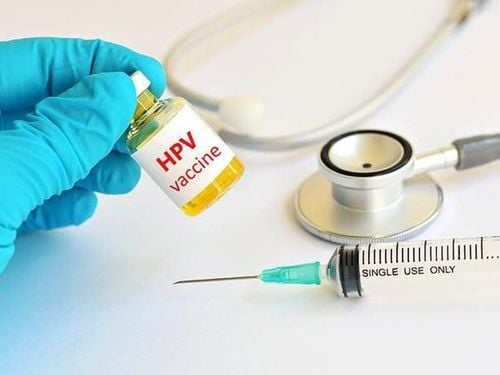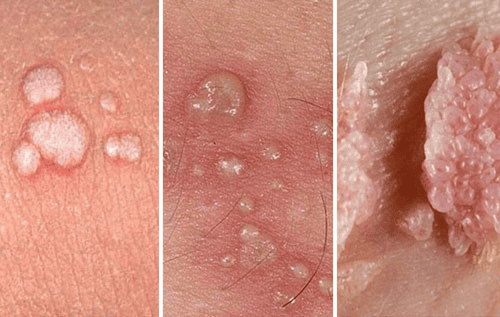Sexually transmitted diseases are increasing in today's society. The main reason is the trend of having many sexual partners. Having sex with many people increases the risk of diseases such as gonorrhea, syphilis, HIV, etc. directly affecting the quality of life of the patient.
1. Status of having many sexual partners
In Vietnam, in 2012, the ISDS Institute for Social Research conducted a study on the sexual life of Vietnamese people. They interviewed 5,300 people, including 2,400 men and 2,900 women, all aged 18-65 in 11 provinces and cities nationwide. This study showed that the record for many sexual partners belongs to a man over 30 years old who has 200 sexual partners.
Meanwhile, the record number for women is only 5 sexual partners. The percentage of respondents who confirmed being faithful to 1 partner was 78%, only about 6% had more than 3 partners. Dr. Khuat Thu Hong - Director of ISDS shared that this number may not be accurate. Vietnamese people still have the prejudice that if they show off the number of partners, they will be judged as untrustworthy, promiscuous, playboy, etc. Therefore, it is very difficult to have an accurate answer to the question "How many partners have you had?"
2. Some sexually transmitted diseases when having sex with many people
Sexually transmitted diseases are also known as venereal diseases. This disease has a probability of being transmitted from person to person through sexual acts such as vaginal intercourse, anal sex or oral sex. Venereal diseases include several diseases such as HIV, gonorrhea, syphilis, genital warts, etc.
2.1. Having syphilis due to having many sexual partners
Syphilis is a sexually transmitted disease caused by the spirochete Treponema pallidum. It has a long incubation period. The spirochete Treponema pallidum infects the skin, mouth, nervous system and especially the genitals of both men and women. The main cause is unsafe sex, having sex with many partners. In addition, this disease can be transmitted through blood, from mother to child at birth.
According to a venereal specialist, syphilis can be completely cured without any serious consequences if detected early. In case of late detection, the disease can easily cause many serious dangerous complications such as headaches, strokes, hearing loss, dementia, meningitis, blindness, heart valve damage, and an increased risk of HIV infection 2-5 times higher than normal. Especially for women, the risk of miscarriage, stillbirth or infant death within a few days of birth is significantly increased.

2.2. Sexually transmitted gonorrhea
Gonorrhea is one of the sexually transmitted diseases (STIs), caused by the bacteria Neisseria gonorrhoeae or gonococcus. This disease can easily spread between people through the following ways:
- Vaginal, oral or anal sex;
- When sharing vibrators or other sex toys that have not been washed or covered with a condom each time they are used.
Gonorrhea will affect the urethra, rectum and throat. Gonorrhea in women will also affect the reproductive organs.
Symptoms of gonorrhea often do not appear immediately after infection. It usually appears about 10-20 days after infection. When symptoms appear, the first thing you should do is see a specialist for treatment as soon as possible. If left untreated, the disease can cause rashes, fever, and eventually joint pain.
Some clinical symptoms and signs of gonorrhea are often different in men and women.
Signs of gonorrhea in men include:
- Pain when urinating;
- Pain or swelling at the tip of the penis;
- Swelling or pain in the testicles;
- Urinating more often;
- Pus in the penis;
- Persistent pain.
Signs of gonorrhea in women include:
- Unusual discharge from the vagina;
- Sore, swollen throat;
- Pain during sex with a partner;
- Pain in the lower abdomen;
- Pain or burning sensation when urinating;
- Urinating more often than usual;
- Fever.
Some women think they have a yeast infection when they notice unusual vaginal discharge. However, it can also be caused by gonorrhea. Therefore, women should not self-medicate with over-the-counter medications. The best way is to see a specialist for an accurate diagnosis and timely, proper treatment.

3. How to prevent sexually transmitted diseases
To prevent sexually transmitted diseases, each person needs to:
- Do not have promiscuous sex with multiple partners, especially with prostitutes. Be absolutely monogamous;
- Clean the genitals before and after each sexual intercourse with a cleaning solution;
- Use quality condoms for each sexual intercourse;
- Do not use drugs, stimulants, etc.;
- Have regular health check-ups every 6 months to detect diseases early and treat them promptly;
- In addition, you should not ignore the HPV vaccine, newer versions of this vaccine are up to 90% effective in protecting you from cancer-causing HPV strains, thereby limiting sexually transmitted diseases, protecting your health and that of your family.
To arrange an appointment, please call HOTLINE or make your reservation directly HERE. You may also download the MyVinmec app to schedule appointments faster and manage your reservations more conveniently.













